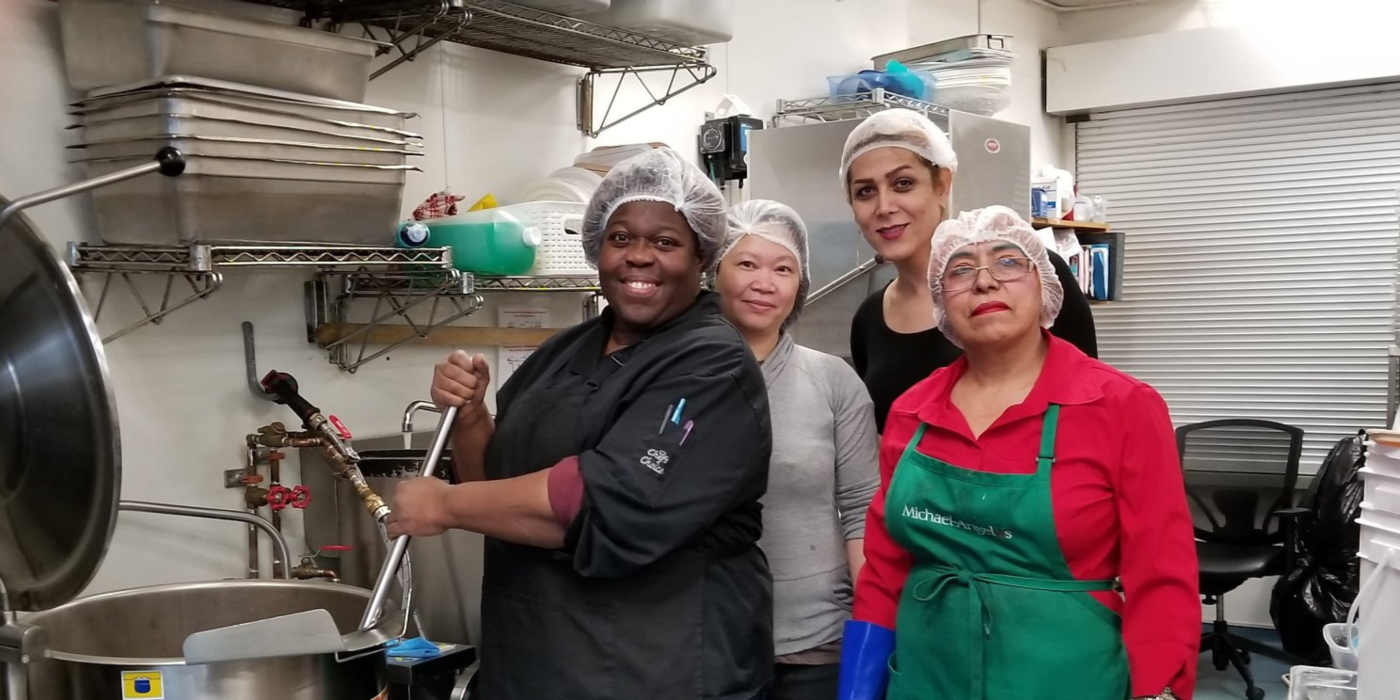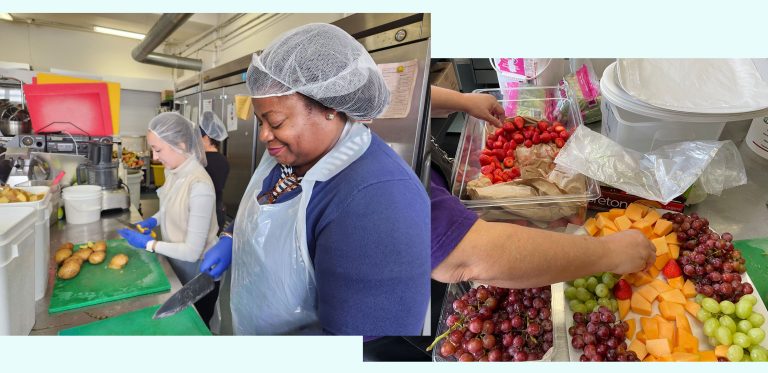

For over 40 years, Sistering’s Food Access Program has been a lifeline, providing healthy, delicious, and culturally appropriate meals to women and gender-diverse individuals facing food insecurity, poverty, and homelessness.
Access to nutritious food is more than just a meal—it is essential to long-term health, emotional resilience, and economic stability. At our 24/7 Drop-In, sharing food helps us create a sense of community, safety, and connection for those we serve.
Last year, Sistering served 131,122 meals to hungry community members!

Sistering Kitchen Employment Program
The Sistering Kitchen employment program offers peers a pathway to a career in the culinary arts and economic independence. In the kitchen program, Sistering peers work up to 15 hours a week, learn essential cooking skills, gain work experience in a fast-paced environment, and build up their resume for a career in the culinary industry. Currently, Sistering employs six kitchen peers.
We are grateful for the ongoing support of our regular donors. Thank you, KFC, Red Lobster, Whole Foods, Daily Bread, and Second Harvest, for your commitment to expand food security!
About Food Insecurity in Canada
Did you know that 1 in 10 people in Toronto rely on food banks to meet their basic needs?
Root Causes of Food Insecurity
FOOD BANK ACCESS
In March 2023, Food Banks Canada reported nearly 2 million visits to food banks across Canada. This data represents an increase of 32% compared to March 2022 and a 78.5% increase compared to March 2019. This jump is the highest year-over-year increase in usage ever reported. Food Banks Canada served a total of 3,820,925 meals over March 2023.
AFFORDABILITY
People accessing food banks in Canada are more likely to be in the lowest income bracket and are particularly affected by increases in food prices. The rising cost of food is only part of the issue; limited financial resources and housing costs over the affordability threshold of 30 percent of one’s income restrict people’s ability to manage food inflation and struggle with food insecurity. In addition, people working in the lowest-paying jobs were less likely to have seen any wage increases during the past year and were more likely to work in industries where part-time work is the norm.
STRUCTURAL FACTORS
There are macro-level factors that create barriers to food security beyond inflation. Systemic issues such as colonialism, racism, classism, sexism, ableism, and ageism, as well as social determinants of health, such as income, education, transportation, and access to housing and community infrastructure, can be detrimental to food security. It is essential that we provide adequate support services and programs for marginalized populations and strive for an equitable society for all.